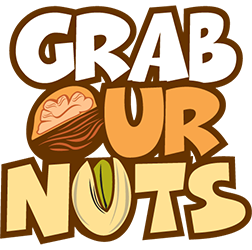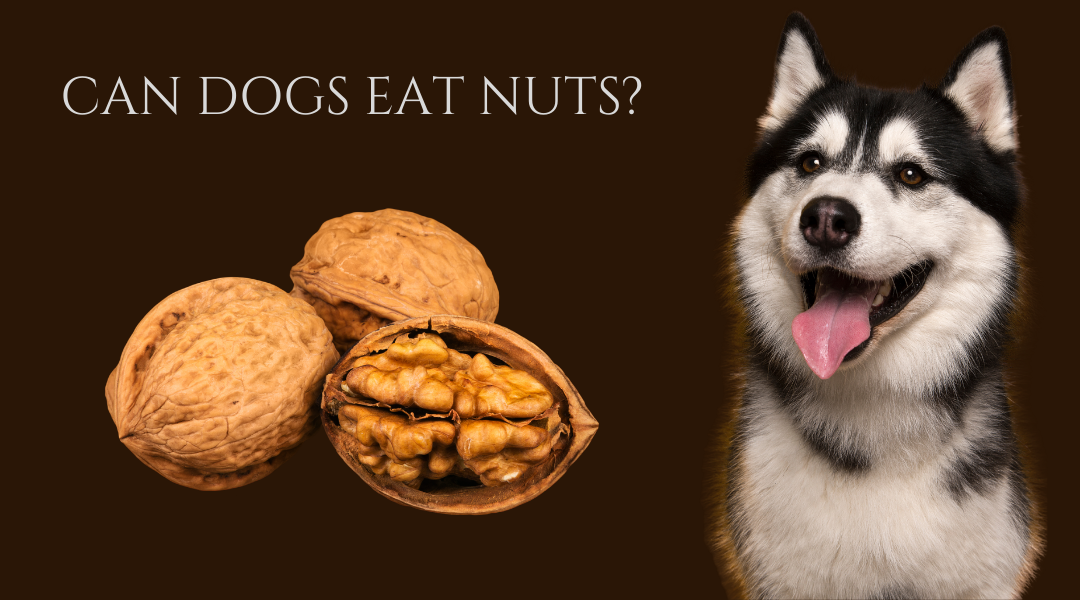How Can Dogs Eat Nuts Safely
Can dogs eat nuts? The answer is actually a little more complicated than a simple ‘yes’ or ‘no’. Although we’ve never met a dog who doesn’t love peanut butter, some types of nuts aren’t necessarily safe for your canine companion to eat. Alternatively, certain types of nuts are actually a great supplement for your pup’s diet! Really, it all depends on the situation.
So how can you tell the difference between which nuts are okay for dogs and which nuts aren’t? That’s exactly what we’re here to look into! In this guide, we’re going to break down what is safe for your dog to eat and what you should avoid. With these things in mind, you’ll be able to use this as your cheat sheet when feeding your dog fresh healthy nuts!
Dogs and Nut Consumption
Generally, most nuts are safe for dogs to eat. However, some nuts are riskier than others. In addition to this, the number of nuts you feed your dog matters. In contrast, for some dogs nuts aren’t always the healthiest choice. Consequently, everything depends on which types of nuts you’re feeding your dog, how many at a time, and then on the pup’s individual needs.
For instance, legumes, such as peanuts, are high in fat and dense in calories. Safety-wise, these nuts are perfectly fine for dogs to eat. Plus, peanuts are great for helping improve your dog’s coat and making sure that he stays full of energy!
On the other hand, too many peanuts can quickly become a bad thing. To summarize, know the needs of your specific dog, check which types of nuts are safe first, and don’t overfeed your pooch.
The Benefits of Nuts for Dogs
For many dog owners, peanut butter can be a great training tool! First of all, peanut butter has a creamy consistency. Sticky, gooey, and full of nutrients, even picky dogs prefer peanut butter as often as hungry dogs who will eat anything that you feed them! Better yet, peanut butter is easy to put inside dog toys, spread on a lick mat, and so on.
Best of all, peanuts and most other nuts contain omega-3 fatty acids. Omega-3 fatty acids can be extremely beneficial for dogs! Omega-3’s are known for helping with energy, skin, nails, fur, and more! So, if your dog is having issues with shedding or coat growth, omega-3 supplements from nuts are a great idea.
Nuts are an Energy Dense Snack for Dogs
Also, if you are out on a hike with your pup, feeding him a few peanuts won’t usually hurt anything. Indeed, nuts are energy-dense and rich. Since they’re handy to carry and can be added to so many dog treat recipes, these versatile snacks can be great for dog owners to have on hand!
Therefore, peanuts are one of the best dog food supplements to work with when you and your dog are out and about. As long as your dog likes peanuts, a small handful a day is usually totally fine! As a matter of fact, many amazing dog treat recipes involve peanuts!
Not All Nuts are Okay
With all of this being said, use caution when adding new foods to your dog’s diet. Consider that some nuts aren’t good for Fido’s tummy at all. On top of that, not all dogs can tolerate the same types of food. Just like humans, many dogs are sensitive to certain ingredients.
With this in mind, all of our advice should be taken under consideration with your specific dog’s needs as a top priority. To be extra safe, it’s always a good idea to talk with your veterinarian before feeding your dog any kind of new food.
Downsides of Nuts for Dogs
To be sure, too much fat in your dog’s diet can cause issues. Some of these issues may include vomiting, diarrhea, pancreas issues, inflammation, and weight gain. On top of that, there are certain types of nuts that you definitely shouldn’t be feeding to your dog.
Namely, NEVER give your dog macadamia nuts, Brazil nuts, or unshelled nuts. In particular, macadamia nuts can be toxic for dogs. Furthermore, nuts with the shells still on can cause choking or dangerous digestive issues. With that in mind, most other nuts are safe or moderately safe in reasonable quantities.
Moderating Calories and Supplementing Dog Nutrition
When it comes down to it, even the healthiest foods must be fed to your dog and moderation. When deciding which nuts to feed your dogs and in what quantities, first consider his daily calorie intake. For instance, If your dog is relatively inactive and has already eaten dinner, feeding him loads of nutrient-dense nuts might not be a good idea.
In contrast, if your dog is extra active and has been running around all day, peanut butter or a cashew snack is definitely a good option! Especially if you have a large breed dog or a working breed with a naturally active temperament.
How Many Nuts a Day are Safe
With nuts, it usually is about calories. So, you can ask your veterinarian how many calories your specific dog should be eating each day. From there, add the calories listed on the nuts you’re giving your dog based on the serving size to the calories he gets from his food daily intake.
How can you find the calories in different types of nuts? No worries, there are many free calorie counting tools online. As such, it is simple to get a specific calorie count for each type of nut. Keep in mind, salted nuts and flavored nuts aren’t usually good to feed a dog.
The Best Nuts That are Safe for Dogs
Now that you know the basics of nuts for dogs, here’s a breakdown of which nuts dogs can eat safely.
Peanuts
Obviously, peanuts are okay. Legumes like peanuts can be very good for your dog! Although there are mild risks associated with peanuts, they’re usually very safe. Moreover, when you purchase peanut butter for your pup, look for a brand that is low in sugar and salt. Better yet, buy fresh peanuts and make your own homemade peanut butter!
Almonds
Next, almonds are very safe for dogs to eat. Keep in mind that all meds can be difficult for dogs to chew. So, if you’re going to feed your dog almonds, consider breaking them up into smaller pieces. Also, it never hurts to buy fresh almonds and make homemade almond butter for your dog.
Cashews
Another great nut for your dog to enjoy is the cashew. Cashews are loaded with healthy nutrients and have been known to prevent the risk of cancer in mammals. With that being said, cashews are high in fats and oils. Therefore, it’s a good idea to moderate how many cashews your dog consumes. This is especially true if your pup is overweight.
Pistachios
Unshelled salt-free pistachios are another great option for dogs. As long as you remove the shells, these nuts are very safe and high in nutrients.
Pecans
Raw pecans are also fine for your dog to eat. Just remember that pecans are high in fat so don’t give your dog too many.
Walnuts
Finally, unshelled walnuts are safe for dogs. However, their large size can make them difficult for your dog to chew so they may be a choking hazard. Always remember to remove the shells of walnuts before allowing your dog to eat them.
Can Dogs Eat Nuts – Yes Indeed
So now you know that, yes, dogs can have many kinds of nuts! Remember, choose unsalted nuts with the shells removed. Always avoid macadamia nuts and Brazil nuts for dogs. Then, pecans, walnuts, pistachios, cashews, almonds, and peanuts are dog-safe options!
Here, we sell pecans, walnuts, pistachios, cashews, almonds, and peanuts that are safe for dogs to eat! Better yet, we offer these fresh nuts in bulk at wholesale prices! That way, you and Fido can both enjoy the delicious and healthy benefits of nuts.
Now that you know the answer to the big question; “can dogs eat nuts?” Here’s your chance to pick up some at the best price found anywhere online! Click Here to see what we mean!















